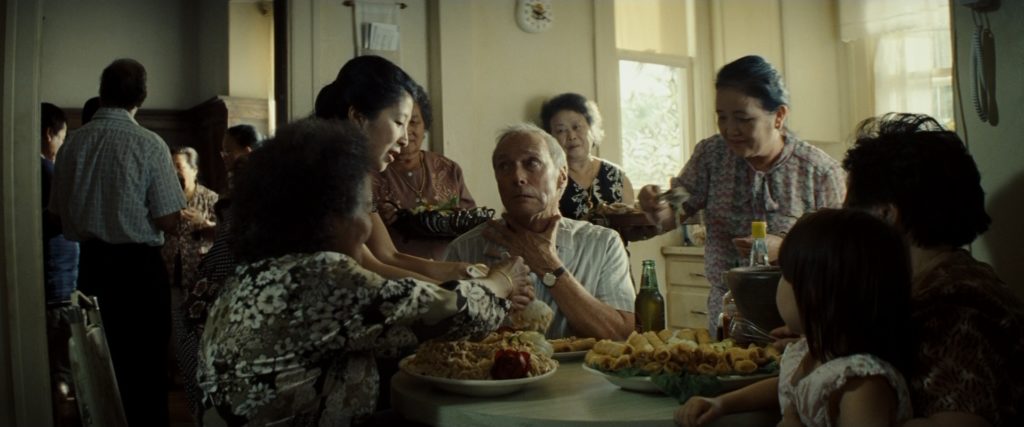I was Mr. Mom the last two weeks for our 11 month old. His grandparents, who usually take care of him during the day, went on vacation. My wife works away from home. I work, too. . . from home. That put me in charge of the day care.
By our third day, together, I was able to figure out what he wanted when he whined or cried. By the fourth day his whimpering stopped because he had what he needed before having to cry about it. Taking care of him was a lot easier than I expected. Sure, he needs lots of attention, but, it was nothing like the awful stories I’ve been hearing all my life. I began to think about why babies have a reputation for being so difficult. And, what’s making it easier for us?
I’m no more a baby expert than any parent. What I’m listing, here, are seven reasons why I think we’re having an easier time with our baby than the stories you’ll hear ‘out there‘. Six of them the parents can control. The last one is luck of the draw:
- Schedule
- Routines
- Company
- No Vaccines
- Balanced Meals
- Vitamins
- Disposition
(Note: This article was written in 2009. We’ve since had our second baby who was only a dream when writing this article. One thing that stands out, now, is the implication that a baby crying is, somehow, a disaster–or proof positive of a problem– that must be “solved”. Of course, it could be just that as crying is one of the few ways a baby can communicate . . . anything. What I left out, in my new-father haste to “solve the problem”, was the sheer joy of a baby crying when you “just know” there’s nothing seriously wrong. That’s why I chose the picture for the article of both a man and baby crying with mom laughing: It’s a more accurate portrayal of the wonder and beauty of this time in a family’s life. I don’t want to live in a world where baby’s don’t cry nor do I mean to contribute to such a world through any words that I may write. What I do want to share with potential new parents is how much easier, and lovely, it is to care for a crying baby than what you may have been told. That’s something I never knew, in large part, because the parents I might have learned from didn’t say. If silence is the worst mistake then I pray the Lord keep me from making it and keep it short and sweet it the process.)
Schedule
Timothy’s on a loose schedule for the entire day. It’s specific in content and sequence. It’s flexible in start time with naps and bottles dropping off depending on his mood and other activities:
- Wake up and Bottle – Whey protein (No cows milk) With Vitamins and Fatty Acids.
- Play or sleep until . . .
- Breakfeast – oatmeal with a scoop of stomach flora
- Bath and Change Clothes
- Ride in Toy Car around the block
- Play, Bottle then Nap
- Lunch
- Play, Bottle then Nap
- Dinner
- Play
- Bottle (with cereal) then off to bed.
This is easier than it looks. The start times shift up to an hour though always in the same sequence. There’s many benefits for him (And for me, these last two weeks) in being on a schedule like this:
- Predictability – The baby knows what to expect and so do we. Neither of us is surprised by bath time or when its time to take a knap. The baby begins to expect to receive all the things he needs at a certain time. It becomes easy to figure out what he may be missing if he does start to whine or cry. In other words, it makes the process of elimination for why he’s crying very simple.
- Planning – All of us know what is happening and when, including the baby. We can plan the times for phone calls, shopping for items needed, visits from friends, working out at the gym or whatever else is going on in our non-baby life.
- Comforting – It seems to me the schedule removes a certain anxiety from the baby’s mood. His emotions and metabolism ebb and flow as the schedule unfolds. He knows that everything he needs is going to be given to him when its time to be given. And it was comforting for me to know that I was doing everything necessary for him and not leaving anything out.
- Ease of Transition to Backup Caretaker – This is an awesome benefit! It made it very easy for me to step in as primary caretaker. Timothy’s schedule didn’t change at all when grandmom and grandpop went on vacation. I was clumsy, at first, but knew what and when to do everything and was certain nothing was being left out because of the schedule they gave me. When he cried in the first three days it was because I was not getting him to the next item on his schedule in time or he wanted a bottle instead of a nap, or, vice versa.
Routines
Everything on and off his schedule unfolds in a predictable way:
- When he’s watching a cartoon he’s sitting in his chair and hears the sound of us in the kitchen making his lunch.
- He knows its time to take a nap when we’re lying next to him after his morning bottle.
- He knows he’s going for a car ride when the dog starts barking and we get his toy car ready.
This is real SuperNanny stuff, I know. But, we’re planning on having a second child and I think schedules and routines are going to be key in managing our lives. I also think they’re going to be key in having less babies crying for seemingly no reason. And if they cry, we’ll have good clues as to why.
Company
Not having company makes Timothy cry.
Other than when he’s sleeping he wants company at all times. This will probably change in a few years as he starts reading or playing with more educational toys. But, for now, he wants someone with him at all times. You don’t have to be looking at him or directly interacting with him. You just have to be there with him in the same room.
BTW, Isabel gets a special mention in this category: We get a little crying when switching company from mom to dad and just laughing when switching back to mom. Do we have a mama’s boy issue, here? Mmmmmmmm. Not sure. It only lasts about 45 seconds. We’ll see.
No Vaccines
I think we have a much easier time with Timothy because he wasn’t vaccinated. When he cries its for one of six reasons (See Conclusion, below). He’s not in a constant state of recovery from the three dozen antigens he would have gotten by now. That’s 36 less things to cry about.
For a thorough explanation of why we chose not to vaccinate see my article, Vaccines For My Baby. It was not an easy choice, our first pediatrician ‘fired’ us and it’s been the subject of many discussions. But, I do think it was the right choice and part of that is evident in Timothy’s lack of crying for ‘mysterious’ reasons.
I may be wrong, but, I suspect the reason babies have a reputation for endless and inexplicable crying is because of the dramatic rise in vaccines given to them since 1982. If you’ve got the other six items in this article under control then vaccines may be the crying culprit.
What a tragedy it would be if less people have babies because vaccines make them cry too much. New parents tell would-be parents their nightmarish stories and the endless patience needed to withstand constant crying. The would-be parents don’t have superhuman patience so opt out of having children, at all.
All I’ll say here is that vaccines are not needed to achieve immunization to the diseases for which they’re given. In most cases the fine print actually says that immunization is not guaranteed by the vaccine. The only thing that can guarantee protection from the world’s millions of diseases is the babies’ immune system — the very thing vaccines tend to destroy, not boost.
Balanced Meals
I get grumpy and grouchy when I eat the wrong foods. If I was a baby that would probably take the form of crying. I think its reasonable to say that a baby cries less on a balanced diet. Or, to put it another way: An unbalanced diet is unlikely to lead to less crying.
Blood sugar regulation is key to mood leveling. We’ve taken pains to remove high-glycemic food from our son’s diet. His diet is about 30-40-30 protien-carbs-fats with the carbs being all vegetables and fruits. His bottle is the closest to breast milk in content we could find with no cow’s milk (Whey protein, instead).
From what we’ve seen this seems to be a very balanced diet for him. It levels his blood sugar, keeps him satisfied until the next mealtime and his energy spikes are smooth and natural with no crashing in between.
Vitamins
What’s the opposite of a vaccine? Nutrition that assists rather than destroys your immune system. Vitamins, minerals and fatty acids are all added to Timothy’s morning bottle.
We give him extra vitamin D because babies get much less sun than toddlers. We also give him a baby appropriate liquid multi-vitamin, fatty acids and add a small scoop of beneficial bacteria for his stomach to his morning cereal.
All of this was recommended by our son’s doctor who is a naturopath. The stomach flora is recommended for babies who were breastfed for less than 6 months. The added vitamins are to supplement a babies diet since newborns are not eating a wide variety of food, yet. Bacteria in the stomach enables easier digestion: One less thing to cry about.
Disposition
This one’s luck of the draw.
Most of the parents I’ve talk with say their baby had a definite disposition from the moment they were born. That’s been true for us, as well.
I hear the term ‘colicky’ to describe a baby that cries all the time. Colic is a term for anything that causes abdominal pain in horses (And now babies, too). I’m not sure if this is 100% disposition. It could be one of the other 6 items in this article because the term ‘colicky’ is so broadly used.
I’ll know more about this after we have baby #2. For now I would just say that we did not draw the short straw on this one (Thank God).
Conclusion
Our baby cries for six reasons:
- Hungry
- Tired
- Dirty – Needs diaper change
- Company
- Pain – Bumps himself while playing
- Toy – Got pushed under the furniture or he wants one.
It’s worth saying that these are the only reasons he cries. I wish somebody gave me this list when I was deciding on having children. It’s a much shorter list than I was led to believe by rumours, magazine articles and stories floating around ‘out there’.
Addressing the six things that make our baby cry doesn’t require superhuman patience. It requires a simple rem edy to a short list of causes.
We didn’t draw the short straw on disposition, this time. If Baby #2 is ‘colicky’ at least we’ll have strategies in our control to minimize babys’ (And parents’) crying.
I’m grateful to my wife, mother and father-in-law for putting so many things in place that serve Timothy’s needs before he has to cry about them. He has a schedule, routines, company, is not vaccinated, has balanced meals, gets good nutrition and there is no mysterious or endless crying. None of these things are a big deal, alone. It is a very big deal, however, when they come together and make for a happy baby and a peaceful house.
Copyright © 2014 by Terence Gillespie. Permission to reprint in whole or in part is gladly granted, provided full credit and a live link are given to McGillespie.com



